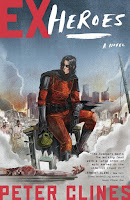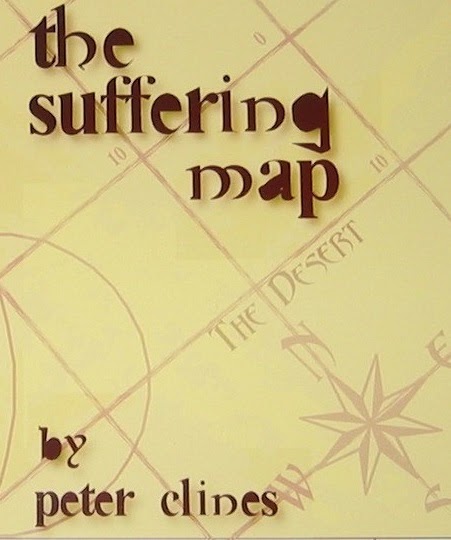Hey, a quick bonus post or Writers Coffeehouse folks. Or any of you who are interested in such things…
 One of our Coffeehouse topics this past weekend was querying agents, and I told the folks there about how I actually got attention from two fairly well-known, high profile agents because I had a good query letter and could talk like a professional in one-on-one meetings. And I thought it might be useful to some folks to have said letter as a rough template.
One of our Coffeehouse topics this past weekend was querying agents, and I told the folks there about how I actually got attention from two fairly well-known, high profile agents because I had a good query letter and could talk like a professional in one-on-one meetings. And I thought it might be useful to some folks to have said letter as a rough template. Ironically, the book I was querying with was The Suffering Map, my early novel that I use so often here as an example of how not to do things. Seriously, I use it so often there’s a tag for it. A big one. You could figure out a lot of the book just by reading about all the elements I screwed up in it.
Anyway…
————————
My Old Address
Name
Agency
Address
New York NY
Ms. ########,
If you could travel in an instant to anywhere, or any-when, in the world, where would you go? Now, what if there was a price? What if each journey submitted you to a nightmare of pain and torture before you arrive, unharmed, without a mark on you, at your destination. Getting there is not half the fun. So why would Rob Fable do it a second time? Or a third? And what would happen if he got addicted to it?
My novel, THE SUFFERING MAP, is a suspense/ horror novel that also involves a great deal of mythology, history, and a sprinkling of pop culture. It’s set in my home city of San Diego , and the title refers to a mysterious device, found (well, stolen) by Rob, which allows him to travel while submitting him to the whims of a being called Bareback. It also brings him into contact with Sondra, who develops an unusual bond with the Suffering Map, and Gulliver, who has his own plans for the mechanism….
Rob comes to realize the financial potential of the device and travels with it more and more. When he discovers some of the historical results of using the Suffering Map, though, he finds it isn’t that easy to stopusing it. In the end, Rob must come to terms with his addiction to the ancient machine as his friends try to save him and themselves, for Bareback has his own plans, and the power of history is on his side.
I would like to send you either the full manuscript of The Suffering Map (approximately 120,000 words), or some sample chapters and a synopsis, at your preference. Please find a SASE enclosed for your convenience.
Sincerely,
Peter Clines
———————–
So, look at what we’ve got here. First off, it’s short and simple–one page only. I introduce the four major characters and explain the title. Also notice that while pretty much the whole thing is talking about the story–this could almost be a back of the book/inside flap description, I also slip in a bit of humor (okay, maybe he didn’t find the Suffering Map…) and some credentials (I’m not just writing about a city I’ve never been to or visited once).
I wrap it up with a professional closing. At the time this particular agent hadn’t set out firm guidelines past “query first,” so I suggested some options, each one showing that I have an understanding of the process. By offering the full manuscript (with a word count) I’m confirming it’s done, and I have an idea how long such a book should be. Offering a synopsis implies I either have one ready or know how to prepare one. And all of that helps show that I’ve got an idea how to use words to convey ideas. Y’know, like a writer…
One more thing. The little device of asking questions—good, semi-rhetorical questions—encourages people to consider answers. So even though I address these questions a bit later (to some degree), I’m still leaving room for the agent to wonder about what the answer is. The Suffering Map, as implied, has a mystery element to it, so questions worked well for me. YMMV.
However… I hear that “asking rhetorical questions” has been getting used in queries a lot lately, and the device is bordering on gimmicky. Most agents hate gimmicks, because even though it may be new and clever to me, odds are they’ve seen it a hundred times. This week. Some might just roll their eyes and keep reading, for others it may be a dealbreaker. So be cautious with gimmicks. Or something that may be bordering on gimmick-hood.
And, again, please don’t forget—this is an example of what worked for me. Your individual query letter needs to reflect your book and your skills as a writer, so copying this and making minor tweaks won’t really help. This is just a guide, so when you’re talking about your book you’ll have a sense of what to say.
On our regularly-scheduled Thursday post, I wanted to talk about sucker punches.
Until then, go write.
And if you’re at that stage… query.






